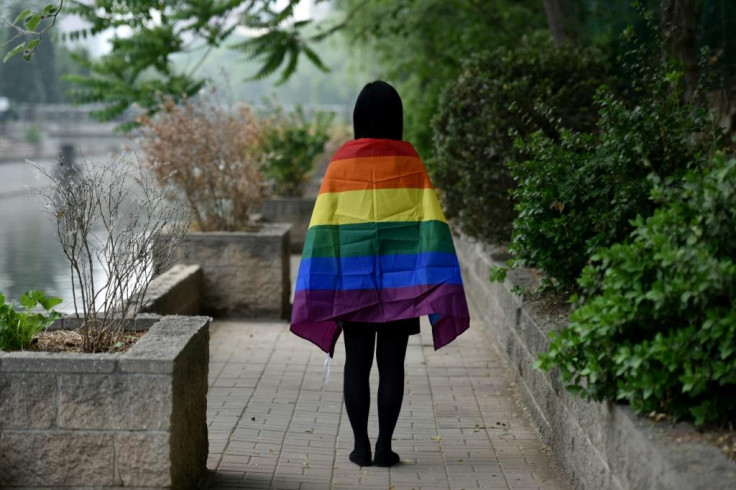Greece Becomes World's First Orthodox Nation To Legalise Same-Sex Marriage
The vote took place over two days of heated debates, with supporters of the legalisation describing the legislation as "long overdue" and "bold".

Greece is paving the way for Christian Orthodox nations after it became the world's first to legalise same-sex marriage.
Athens parliament passed the LGBTQIA+ legislation while civilians took to the streets in celebration of the reform.
The vote took place over two days of heated debates, with supporters of the legalisation describing the legislation as "long overdue" and "bold".
While the landmark bill was commemorated, homophobic scenes of fury also took place. Opponents of the reform, including the leading Orthodox church, called the legalisation "antisocial" and "unchristian".
While Greece has officially been named a secular state, its religious landscape is heavily influenced by the Greek Orthodox Church.
Out of Greece's population, currently measuring more than 10 million, it has been estimated that a huge 98 per cent of people identify with the Greek Orthodox Christian faith.
Out of the 254 MPs who voted on the bill, an unexpected 176 MPs, across a range of political stances, voted in favour of legalising same-sex marriages in Greece.
However, a staggering 76 MPs rejected the bill and 46 members were not present. Just two MPs abstained from the vote.
Greek Prime Minister Kyriakos Mitsotakis welcomed the bill, saying that the passing would put an end to a "serious inequality for our democracy".
In his speech that championed the legalisation, Mitsotakis also said: "The reform that we are legislating today ... will make the life of some of our fellow citizens that much better without – and I emphasise this – taking away anything from the lives of the many."
"We are covering a gap by allowing everyone, if they wish, to institutionally seal their relationship ... just as heterosexual couples do," he added.
The legislation not only legalises gay marriage, but the bill also sets out to allow same-sex couples to adopt children.
"We have waited years for this," said Stella Belia, an Activist and the Head of the same-sex family support group Rainbow Fairies.
"It's a historic moment. A lot of us weren't sure it would ever come," Belia added.
The 54-year-old LGBTQIA+ Activist went on to note that the relentless call for equal rights "is tiresome, very tiresome to fight for something that's an obvious right — to suffer for something that other people are just handed — and have to fight so hard to get it".
But, "it's a great relief to say that we've finally made it", she said.
While adoption has also been legalised for same-sex partners, several prominent bishops have partnered with far-right political groups and traditionalist campaigners to stage demonstrations against the reform.
Reports also declare that several bishops have also warned that they will refuse to baptise the children of gay couples. Orthodox bishops have also threatened to excommunicate lawmakers who voted in favour of the reform.
Chara Giannakantonaki, a Protestor who led a rally against the reform outside Greece's parliament last week, told reporters that she was compelled to refute the bill because "every minority already has its rights guaranteed".
Speaking against the legalisation of same-sex couples adopting children, Giannakantonaki said: "They don't need (same-sex) marriage. They just want to desecrate whatever has remained sacred in Greece: Our Church, our families and our children."
"Children are a red line and we will never accept this," she added.
Arguing for equal rights, Despina Paraskeva-Veloudogianni, Amnesty International Greece's Campaigns Coordinator said: "This law represents an important milestone in the fight against homophobia and transphobia and a hard-won victory for those who have led that fight."
However, the Campaigns Coordinator recognised that the legislation "stops short of allowing full equality for non-biological parents and does not recognize identities beyond the gender binary".
"It fails to facilitate access to assisted reproductive technology for same-sex couples, single men, transgender and intersex persons. It also fails to amend a provision that prevents changing the name and gender of a transgender person in their children's birth certificate," she added.
© Copyright IBTimes 2025. All rights reserved.






















